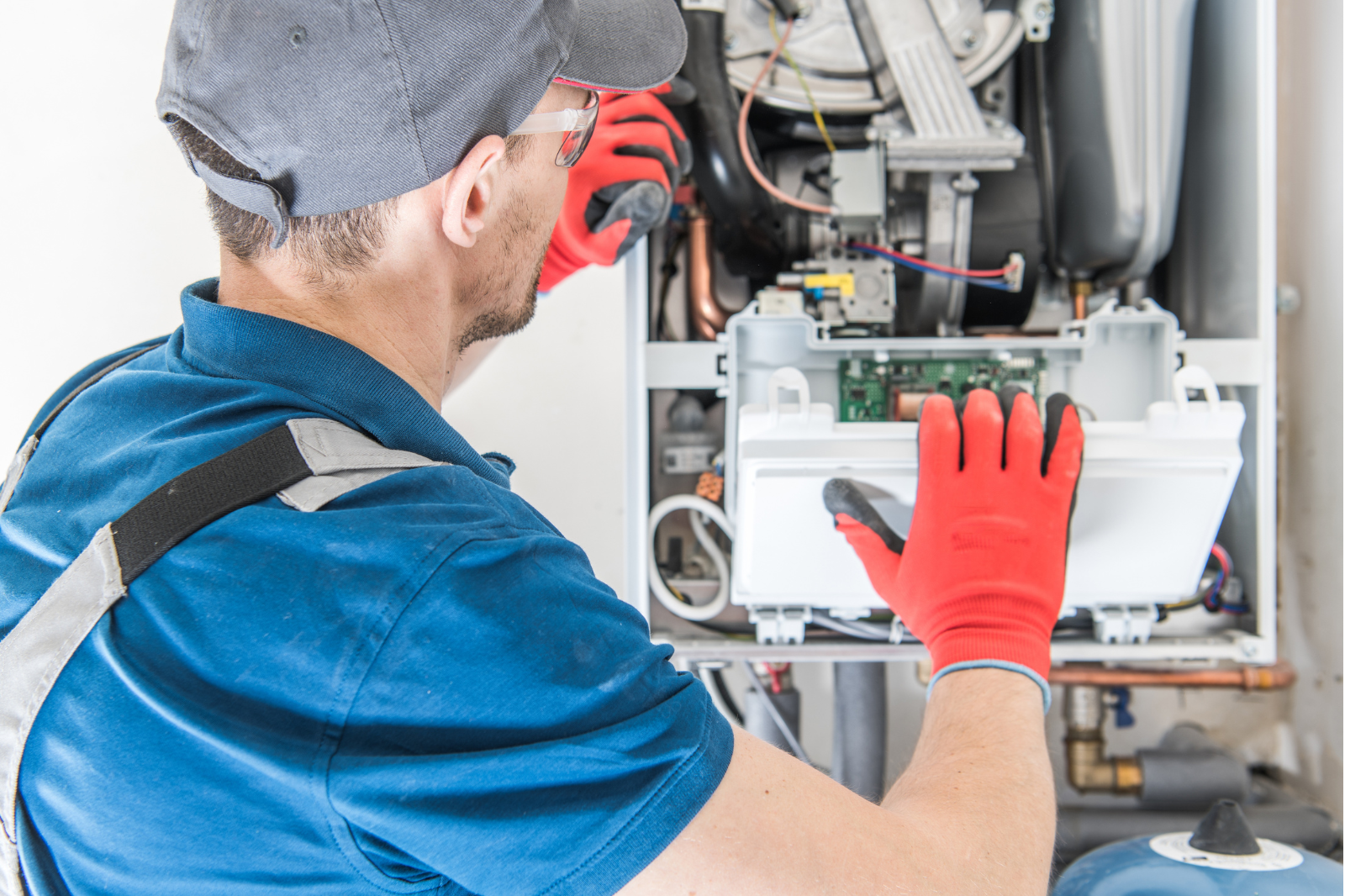If you’re in the market for a new furnace, you can expect to pay anywhere from $5,000 to $12,000. On average, most homeowners pay around $6,000.
After reading that, you might be wondering why the cost can vary so much.
The cost to install a furnace varies based on the following factors:
- The type of furnace you choose
- Installation considerations
- The contractor you choose
Below, we’ll go into more detail about each of these factors.
Want a FREE quote for a new furnace installation?
Factor #1: The Type of Furnace You Choose
Not all furnaces are built the same: Some have a higher heating capacity and others are more energy-efficient.
The cost of the furnace itself can vary depending on the following factors:
- Fuel type
- Size
- Efficiency
- Added features
Let’s look at each of these factors in more detail.
Fuel Type
Gas furnaces usually cost more to install than electric ones. However, gas furnaces are also cheaper to operate.
When it comes to choosing a fuel source, we usually recommend sticking with a gas furnace if you already have access to a gas line. If you don’t have access, an electric furnace might be your best option because the cost to add gas lines to your home can be an additional $1,500+.
Size
When we talk about furnace “size” we’re actually talking about its heating capacity.
Furnace heating capacity is measured in BTUs (British Thermal Units). The more BTUs a furnace has, the more heat it can produce in an hour.
Most residential furnaces range anywhere from 40,000 to 200,000 BTUs.
That said, you don’t get to choose what furnace size you want for your home. Rather, a professional will need to perform a load calculation to determine what size furnace fits your home.
Efficiency
Energy-efficient furnaces can save you money on your energy bill, but they are more expensive to install upfront.
Furnace efficiency is measured by AFUE (Annual Fuel Utilization Efficiency), and it is expressed as a percentage. The percentage indicates how well the furnace converts energy into heat.
For example, let’s say you have a furnace with an AFUE rating of 90%. This means 90% of the fuel the furnace consumes is converted into heat and 10% is wasted in the process.
Most residential furnaces have AFUE ratings that range from 80% to 98%.
Features
Adding special comfort/performance features will increase the cost of your furnace.
Examples of “add-ons” you can purchase with your new furnace include:
- Modulating Burners: These burners can adjust their heating capacity (low, medium, high) based on the temperature they are trying to reach. The result? These burners provide more consistent heating and use less energy (which saves you money on your energy bills).
- Variable-speed Blower: Similar to modulating burners, a variable-speed blower can operate at any speed necessary to heat your home to the desired temperature. These blowers are quieter and more energy efficient than single or multi-speed blowers.
- Smart Thermostat: A smart thermostat can be controlled remotely via a smartphone or computer. Plus, you can program your thermostat to follow set heating schedules based on your comfort preferences.
- Noise-reduction Features: Insulated cabinets and soft-mounted blowers provide additional sound dampening.
Factor #2: Installation Considerations
Two main installation considerations will affect the cost of your furnace installation:
- The Condition of Your Venting System: Gas furnaces require a venting system to safely remove harmful gases from your home. If your current venting system isn’t properly sized or in poor condition, then the cost of the installation will be greater because the furnace installer will also need to fix your venting system.
- The Location of Your Furnace: If your furnace is in a hard-to-access location like a crawlspace, then the installation will take longer, which will raise the total cost of the project.
Factor #3: The Contractor You Choose
HVAC companies that employ techs with more skill and experience will charge more for their labor.
Don’t let this keep you from hiring a good company, though. A quality furnace installation team will have the tools and know-how to install the right furnace for your home, which will save you money in the long run.
Installing a furnace is expensive, and the last thing you want is to pay more money to fix a problem caused by shoddy work.
To avoid expensive repairs in the future, we recommend hiring a high-quality contractor. Below are some questions to help you choose a high-quality contractor:
- Are they licensed and insured? This ensures the contractor will obey local codes, and that you’ll be protected if something goes wrong on the job.
- Do they have good online reviews? Look at sites like Better Business Bureau, Google, and Yelp.
- How long has the company been in business? More experience is generally a sign of high-quality work.
- Do they give written quotes? Getting a quote in writing keeps a contractor bound to their initial quote, which reduces the chance of surprise fees at the end of the project.
Want a FREE Quote for Your Furnace Installation? We Can Help!
Visit our furnace installation page for more information about what to expect when you hire us.

